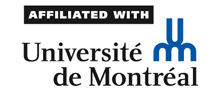By Eric Guntermann, Université de Montréal
People all over the world this week read about Spanish police arresting Catalan government officials and confiscating ballots for an independence referendum. Rather than harming the Catalan government, however, I argue that the crackdown may help it raise support for its unpopular roadmap towards independence.
In the last regional election, held in 2015, secessionist parties argued that a majority of votes would give them a mandate to make Catalonia an independent state. However, they did less well than expected and needed the radical secessionist Popular Unity Candidacy (CUP) to govern. Together they received a majority of seats (53.3%) but not of votes (47.9%).
Nevertheless, they saw the result as a mandate to move unilaterally towards independence. They eventually announced a referendum on independence for October 1, 2017, even though the Spanish government insisted doing so was unconstitutional.
However, the Catalan population has been reluctant to support the regional government’s plan. In a survey Making Electoral Democracy Work (MEDW) ran prior to the Spanish national election held in 2016, only 43.3 % of respondents supported the government’s unilateral independence plan. In fact, more Catalans strongly opposed it (28.0%) than strongly supported it (24.2%). Catalan government surveys also showed that support for independence fell below 40% in 2015.
Parties and Ambivalent Citizens
In a paper that was recently accepted for publication at Party politics, I show that conflict between opposing party positions leads people who prefer one side to the other to adopt that party’s positions as their own. Thus, conflict between regional nationalist parties and the national government led by the People’s Party (PP), which is extremely unpopular in Catalonia, should increase support for the nationalists’ plan.
In Catalonia, many citizens are ambivalent. In separate questions, the MEDW survey asked Catalans how attached they are to Catalonia and Spain on a scale from 0 to 10. I created a score representing how much more (or less) a respondent identifies with Catalonia than with Spain by subtracting identification with Spain from identification with Catalonia.
I plot the proportions with each value in Figure 1. We can see that overall Catalans identify more with Catalonia than with Spain. The mean value is 1.3. However, many Catalans have ambivalent identities and may be influenced by the PP’s opposition to the Catalan government’s actions.
Figure 1: Relative Identification with Catalonia and Spain
Survey Experiment: Does Opposition from the PP Increase Support for the Catalan Government’s Plans?
An experiment was added to the MEDW survey to see how Catalans respond to PP opposition to the Catalan government’s actions. Half of the 543 respondents were randomly assigned to a control group that read a statement that the “Catalan Government has decided to take steps towards the independence of Catalonia without an agreement with the Spanish Government”. The other half were assigned to a treatment group that read the same statement followed by “the Partido Popular (PP) opposes this decision”.
Respondents in both groups were asked whether they support or oppose the Catalan government’s actions. I focus on the half of Catalans with the most ambivalent identities, who, as argued above, are the most susceptible to being influenced by the PP’s opposition.
Figure 2 shows the responses among these participants. In the control group, 60.0% oppose the plan, while 27.09% support it. In the treatment group, opposition drops to 53.8% and support rises to 33.8%.
Figure 2: Effect of PP Opposition on Support for Unilateral Steps Towards Independence (Ambivalent Identifiers)
To test for significance, I created a numeric version of the support variable (coded from 1 to 4, where higher numbers indicate greater support for unilateral independence). The difference between the two groups is 0.32 (p<0.05). Thus, ambivalent respondents who read about the PP’s opposition to unilateral independence were significantly more supportive of the Catalan government’s plan than those who did not read about that opposition.
Given that a simple statement that the PP opposes the secessionists’ plan influences support for it, it is likely that the powerful assertion of the PP’s opposition we saw this week will have a much stronger effect.
For the article referenced above, see Guntermann, Eric (2017). “Party influence where predispositions are strong and party identification is weak: Assessing citizens’ reactions to party cues on regional nationalism in Spain” Party Politics, http://ericguntermann.com/docs/partycues.pdf
